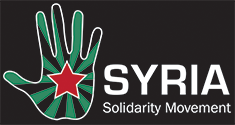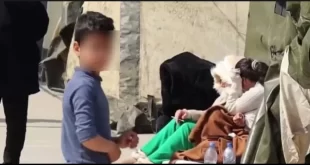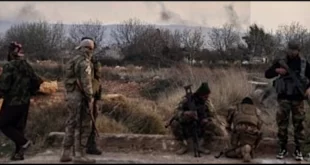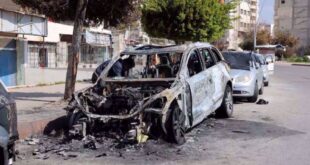On election day, teams of observers were sent to Sweida, Homs, Tartous, Latakia and of course Damascus. In many cases, they were split into smaller teams at these sites, and also met with teams from other countries, including Uganda, Russia, North Korea and others. A team of parliamentarians from several countries also went to Aleppo.
The election was held in a festive atmosphere with lots of singing and dancing. There was no doubt of the outcome, but it was an opportunity for Syrians to show their support for their government, and for the government and the world to hear directly from the people.
The result was a resounding expression of solidarity, although the degree will be known only when the results are tabulated and the turnout is determined. In this context, it will be instructive to compare the results with the Egyptian election, where the results were also known in advance, but where the turnout was embarrassingly low. Not so in Syria. The polls stayed open until midnight and every polling station had a waiting line.
The election was not without its flaws. Members of the regional governorate parliaments accompanied the observer teams wherever we went, and we were treated as VIPs, which made the observation difficult. Voting was often done in the open whether or not private voting booths were available, and they often were not. Thanks to the presence of the members of regional parliaments, we had no difficulty interviewing the voters. By contrast, when some of us went unaccompanied to a polling station at our hotel, we found no volunteers willing to be interviewed.
Our hosts were overzealous. In one instance, we were given an opportunity to interview supporters of opposition candidates wearing opposition campaign T-shirts. Unfortunately, they knew nothing about the views of those candidates or the programs that they represent. They both described their jobs as “casual laborer”, meaning that they are available for hire.
There was no need to put on a show for our benefit. The occasion spoke for itself without extra effort. Clearly, Syrians welcomed the opportunity to show support for their president, whose administration has demonstrated competence and strength, and who has provided for its people can under very trying circumstances. With the future of the country at stake, the paternalism of the Syrian government has been very much appreciated by its people, as has been the case with many other countries in time of war.
Having said that, a voter wishing to send a message of dissent or protest by using her vote to reduce the margin of victory could easily have been intimidated by the atmosphere at some of the polling stations as well as the frequent lack of private voting booths (or the fact that few people were using them). This is a flaw that needs to be addressed in future elections if all of the people are to be truly enfranchised.
Nevertheless, the election is historic for being the first since the 2012 constitution was ratified, and therefore the first to field multiple candidates. This is a small step, but in the right direction. It will be instructive to see how the new parties fare in the parliamentary elections later this year. Currently, only 13% of parliament consists of opposition members (with another 25% independents).
The Syrian government should be commended for taking positive steps towards greater enfranchisement of its people. Clearly, Syrians take seriously their civic duty, as shown by the thousands streaming across the Lebanese border to vote in an election where the outcome is not in doubt. They did the same as absentees in previous days in Beirut, until the embassy ran out of ballots.
Inviting foreign observers is also a courageous step. In spite of its flaws, the Syrian Presidential election carries credibility as well as great significance for the Syrian people, and will undoubtedly affect Syria’s immediate future in a very positive way.
 Syria Support Movement solidarity with the Syrian people
Syria Support Movement solidarity with the Syrian people





